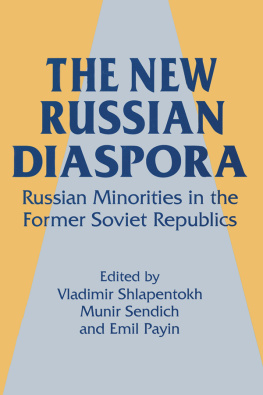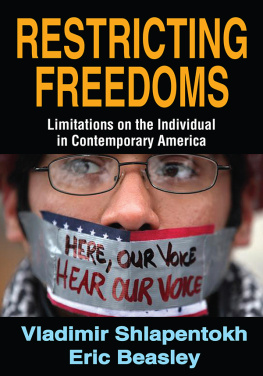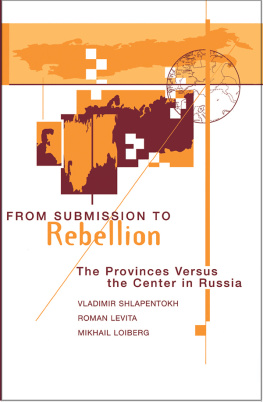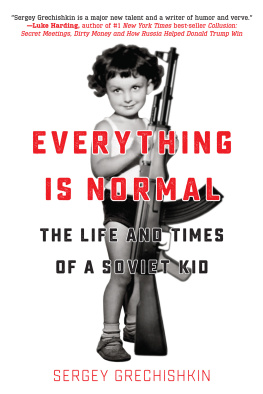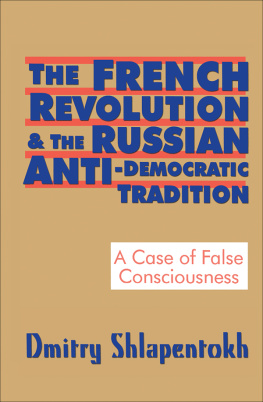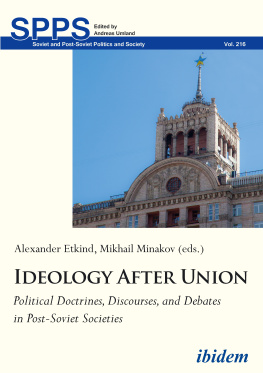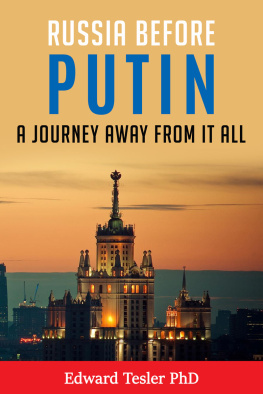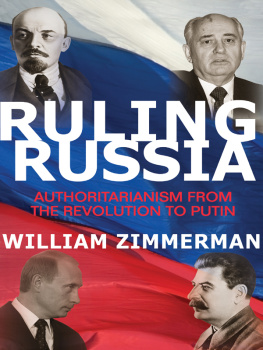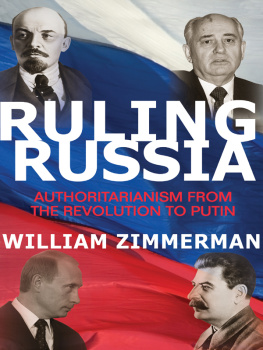Vladimir Shlapentokh - A Normal Totalitarian Society: How the Soviet Union Functioned and How It Collapsed
Here you can read online Vladimir Shlapentokh - A Normal Totalitarian Society: How the Soviet Union Functioned and How It Collapsed full text of the book (entire story) in english for free. Download pdf and epub, get meaning, cover and reviews about this ebook. year: 2017, publisher: Routledge, genre: Politics. Description of the work, (preface) as well as reviews are available. Best literature library LitArk.com created for fans of good reading and offers a wide selection of genres:
Romance novel
Science fiction
Adventure
Detective
Science
History
Home and family
Prose
Art
Politics
Computer
Non-fiction
Religion
Business
Children
Humor
Choose a favorite category and find really read worthwhile books. Enjoy immersion in the world of imagination, feel the emotions of the characters or learn something new for yourself, make an fascinating discovery.
- Book:A Normal Totalitarian Society: How the Soviet Union Functioned and How It Collapsed
- Author:
- Publisher:Routledge
- Genre:
- Year:2017
- Rating:5 / 5
- Favourites:Add to favourites
- Your mark:
- 100
- 1
- 2
- 3
- 4
- 5
A Normal Totalitarian Society: How the Soviet Union Functioned and How It Collapsed: summary, description and annotation
We offer to read an annotation, description, summary or preface (depends on what the author of the book "A Normal Totalitarian Society: How the Soviet Union Functioned and How It Collapsed" wrote himself). If you haven't found the necessary information about the book — write in the comments, we will try to find it.
Vladimir Shlapentokh: author's other books
Who wrote A Normal Totalitarian Society: How the Soviet Union Functioned and How It Collapsed? Find out the surname, the name of the author of the book and a list of all author's works by series.
A Normal Totalitarian Society: How the Soviet Union Functioned and How It Collapsed — read online for free the complete book (whole text) full work
Below is the text of the book, divided by pages. System saving the place of the last page read, allows you to conveniently read the book "A Normal Totalitarian Society: How the Soviet Union Functioned and How It Collapsed" online for free, without having to search again every time where you left off. Put a bookmark, and you can go to the page where you finished reading at any time.
Font size:
Interval:
Bookmark:
Totalitarian
Society
2 Park Square, Milton Park, Abingdon, Oxon OX 14 4RN
711 Third Avenue, New York, NY 10017, USA
No responsibility is assumed by the publisher for any injury and/or damage to persons or property as a matter of products liability, negligence or otherwise, or from any use of operation of any methods, products, instructions or ideas contained in the material herein.
A normal totalitarian society : how the Soviet Union functioned and how it collapsed /
by Vladimir Shlapentokh.
p. cm.
ISBN 1-56324-471-3 (cloth : alk. paper) ISBN 1-56324-472-1 (pbk. : alk paper)
Includes bibliographical references and index.
1. CommunismSoviet Union. 2. Soviet UnionPolitics and government.
3. Totalitarianism. I. Title.
947.084dc21 CIP
As the son of bourgeois parents,
he suffered greatly under the Soviet regime.
To his dying day, he never regarded the society as normal.
Socialism and Russian Nationalism
Creative Intelligentsia
the Major Institution
Font size:
Interval:
Bookmark:
Similar books «A Normal Totalitarian Society: How the Soviet Union Functioned and How It Collapsed»
Look at similar books to A Normal Totalitarian Society: How the Soviet Union Functioned and How It Collapsed. We have selected literature similar in name and meaning in the hope of providing readers with more options to find new, interesting, not yet read works.
Discussion, reviews of the book A Normal Totalitarian Society: How the Soviet Union Functioned and How It Collapsed and just readers' own opinions. Leave your comments, write what you think about the work, its meaning or the main characters. Specify what exactly you liked and what you didn't like, and why you think so.


